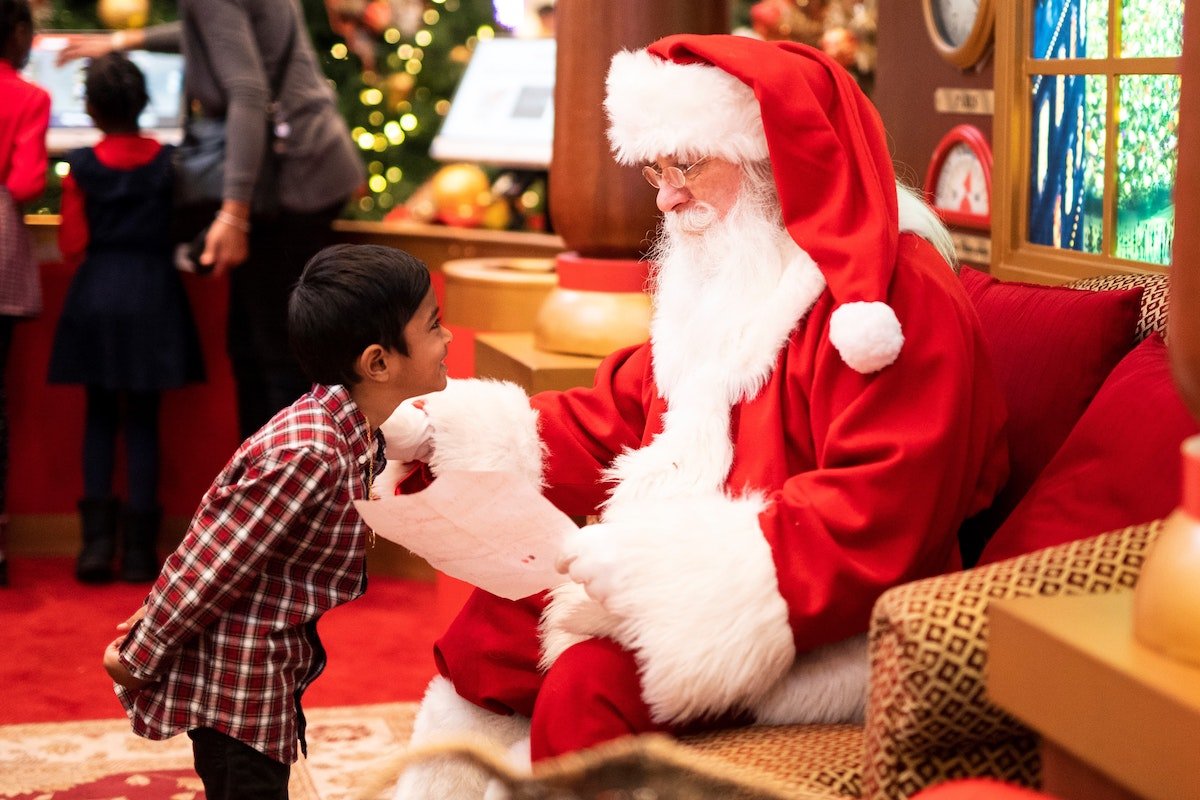Come All Ye Weary: Grace-Filled Parenting for Christmas
As a parent to two littles, it can be easy to become overwhelmed by—well, any number of things. Finding the perfect Advent and Christmas traditions to ensure everyone focuses on Christ this year can feel like another item on the to-do list, another way we’re failing to live up as parents, Christians, and ministers of the gospel. Add in our responsibilities to our church and the busyness of December, and I want to take Jesus up on his offer of rest for the weary.
To make it better this year, our little family is trying to keep the focus on simple and small ways to weave Christmas traditions into our everyday lives. Instead of getting caught up in establishing “the” special moments our kids will remember forever, we’re doing what’s manageable for our family during what could be a very chaotic time of year. This pared-down approach relieves some pressure, reminds us of our limits, and makes Christmas a jollier, more meaningful season for us all.
1. Starting where you are
Confession: I am a naturally scattered person. Managing life as an adult often requires me to control my inner free spirit like an additional child. The added pressure to plan daily Christmas activities, gather materials, and stick to the same traditions each year can quickly become too much for me.
Instead of reinventing the wheel this year, I’m trying to work with the rhythms, items, and habits we have in place. For example, we already light a dinner candle to coax our kids into sitting long enough for us to inhale food. When we’re done, my 3-year-old blows the candle out as a reward for putting her plate away. It’s a cue we already have, and she never lets me forget.
With this tradition already in place, the transition to Advent candles has been (relatively) seamless. After lighting the candle, we discuss the hope, love, joy, and peace we have in Christ. My three-year-old still thinks we’re lighting candles for her friends Hope and Joy, but we do our best. Instead of fighting to make sure they get in a full sermon each day, we expose them to gospel truths however we can. We’re trusting God will grow these little seeds we plant.
We’re trying to bring the sacred into our everyday moments.
2. Weaving in stories as you go
Being distractible isn’t unique to the twenty-first-century family. After giving the greatest commandment in Deuteronomy 6, Moses instructs Israelites to place reminders of their faith in their everyday life and culture. Though it might look different, this passage can set up a devotional pattern for us as well:
These words that I am giving you today are to be in your heart. Repeat them to your children. Talk about them when you sit in your house and when you walk along the road, when you lie down and when you get up. Bind them as a sign on your hand and let them be a symbol on your forehead. Write them on the doorposts of your house and on your city gates.
As my kids and I are together reading stories, waiting for Daddy to come home from work, and learning to apologize (again), I can teach them about God’s Kingdom, what it’s like to wait with hope and why we needed—and still need—Jesus to come.
Instead of adding more distinctively sacred moments, we’re trying to bring the sacred into our everyday moments. Establish whatever gospel reminders you can, and talk about them as you are going. Because adults and children alike are prone to forget.
3. Using your village
As parents in the digital age, our expectations are easily distorted by the variety, and excellence of things we see on social media. We idolize the mom gathering her 10 children for a reverent devotional time, the calming decor of an artistic friend, and the family who invites the neighborhood over to eat made-from-scratch meals every evening.
In our desire to make things meaningful, we may try to do it all. We may forget we’re different people with different skills, personalities, and seasons of life. So don’t feel like you have to do it alone! Join forces with others in your community to make the most of their abilities and personalities.
Ask that mom if she would share a Bible story with your kids. Drive by to admire that friend’s beautifully-decorated lights. Bring the meal you like cooking—or pick up McDonald’s to share. Praise God for the community you may have, and make the most of how God has made them.
4. Embracing the mess
Everything gets a little—or a lot—more complicated when little hands are involved. Depending on your approach, the mess can be part of the fun or a point of contention during the holiday season. When doing things with littles, we need to manage our expectations for the final product and expect things to take longer. Consider raising your threshold for mess and letting your kids go for it.
Displaying the patience, love, & forgiveness of Christ is probably the most important way to share the gospel story.
You can even make traditions a little more sensory. Get hands—and your kitchen—messy making a meal. Taste the batter. Smell the candles. Look at the lights. Wrap and unwrap the Christmas books you already own. Listen, sing, and dance to your favorite carols.
If it stresses you out too much, return to point three, and join forces with someone who loves that kind of thing.
5. Displaying the gospel
Displaying the patience, love, and forgiveness of Christ is probably the most important—and the most difficult—way to share the gospel story with your family this Christmas. I doubt our kids are going to remember the decor, activities, or crafts we do this year. But they are more likely to remember the general mood of our home.
No amount of Christmas glitz and glitter we give our kids can make up for the presence of calm and loving parents embracing our limits and pointing to our perfect Savior. Instead of instinctively reacting during their meltdowns, I want to respond in love. Instead of striving for a perfect holiday, I want to hope in the arrival of our long-expected Jesus.
Come, thou long-expected Jesus,
Born to set thy people free,
From our fears and sins release us,
Let us find our rest in thee.
Marie Burrus is UBA's Communications Specialist. She manages, edits, and contributes content for UBA's blog, website, and social media outlets. Marie uses her Master's degree in Intercultural Studies, her experience as a missionary in Burkina Faso, and her lifelong love of words to write on missions, outreach, culture, and the Christian life.
A version of this article originally posted on The Intersect Project.
Photo by Jonathan Borba on Unsplash









Let’s not grow weary in doing good and sharing hope this Christmas season.